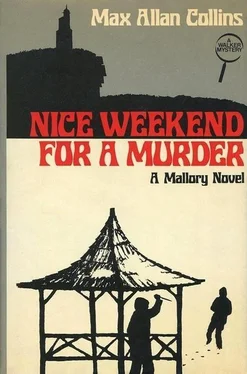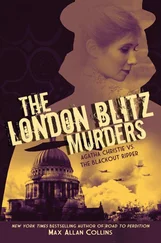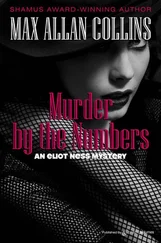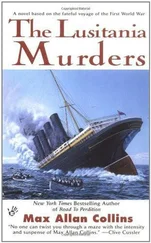Culver, a bearded man with wire-rim glasses and a quiet demeanor, looked something like Woody Allen’s older, better-looking brother. He was, in fact, Curt Clark’s older, not necessarily better-looking brother, older by about a minute that is. They were twins. Not identical twins, though the physical resemblance was strong. Otherwise they had little in common. Oh, they were both mystery writers, but Curt wrote comedy, whereas Culver was an exponent of the tough-as-nails school. Where Curt was a witty, life-of-the-party type, Tim was rather dour. He stood slumped against another beam, a drink in his hand (he’d brought his own — Quakers, remember), in a tan corduroy jacket and jeans and an open-at-the-neck plaid lumberjack shirt.
“That’s a shock,” I whispered to Jill.
We were standing next to Jack Flint and his wife; Tom Sardini was chatting with Pete, the two of them standing as far away from Rath as they could and still be a part of the group. The crowd was noisy, eager for Curt to get started.
“What’s a shock?” Jill asked.
“I knew Cynthia was a guest, but I didn’t know Tim Culver would be.”
“Who’s Tim Culver?”
I nodded toward him, slightly. “That guy. He’s only the best writer alive in the Hammett tradition. He makes Elmore Leonard look wordy.”
“So why are you shocked?”
“He and Curt are brothers. Curt’s last name is Culver, too. Clark was his mother’s maiden name or something.”
“Yeah, so? What’s surprising about one brother inviting another brother?”
“They hate each other,” I said.
Jill blinked.
“Oh,” she said.
“Go away!” somebody said.
The crowd was noisy enough that the outburst didn’t get heard by anybody but us mystery writers and the first row or so of game-players. But those of us who heard it were startled.
It was Kirk Rath, speaking to Cynthia Crystal.
Cynthia Crystal, the critically acclaimed, Edgar-award-winning author, whose biography of Dashiell Hammett had been called by Kirk Rath himself “definitive and masterful.”
“Don’t suck up to me , lady!” Rath snapped.
Cynthia was taken aback; she swallowed, said nothing. Now, Cynthia has a sharp enough tongue — she’s a cool, bitchy number when she wants to be. But the rude, powerful young Mr. Rath had knocked her back.
“I was just making conversation,” Cynthia said, still stunned. “Trying to be friendly...”
“Why?” he said archly. “What’s your motive? This is the mystery world — there’s always a motive.”
Culver moved away from his beam and joined this little Edward Albee one-act.
“You shut up,” he said to Rath.
Rath looked at him with cold anger.
“Your... lady, here, has been trying to get on my good side,” Rath said. “I resent that. Just because her last novel got a less than favorable review from us doesn’t mean her next attempt won’t be treated impartially.”
“Who said it wouldn’t be?” Cynthia said, genuinely confused. “I was just making some small talk. We’re both guests here...”
“Just keep your distance,” Rath said. “Both of you.”
Culver gripped both of Rath’s lapels and lifted the little critic off the ground. Culver said nothing at all, just looked at the wide-eyed Rath a moment, and set him back down. Rath swallowed, his mouth suddenly dry it would seem, and apparently couldn’t find anything nasty or witty or trenchant to say to Culver, who slipped an arm around Cynthia’s shoulder and escorted her a few paces away, near Jill and me.
“Hi, Cynthia,” I said.
She hadn’t noticed me before; she had tears in her eyes, which wasn’t common for this cool cookie, but she flung herself in my arms and gave me a hug.
“Mal,” she said. “Mal, it’s great to see you. How long has it been?”
“Two years, I guess. The Chicago Bouchercon. Looks like your next review in the Chronicler ’s going to be a doozie.”
She laughed. “That Rath’s a prize, isn’t he? At least we get to kill him this weekend.”
Culver said, “That boy’s a born murder victim.”
“He wouldn’t make it past the first commercial of Perry Mason ,” I agreed. “Too bad this is reality.”
The first few rows of players were abuzz; some had witnessed Rath’s outburst, and others were hearing about it via the grapevine.
“All part of the show, kids,” Curt Clark said, stepping out before the crowd, a clipboard in hand. He adjusted his glasses and glanced at the top sheet and said, “Many of you have been here before, but for the newcomers let me explain that you’ve been divided into teams. We’ve already passed the badges out, some of you are wearing them already, I see — fifteen or so players per team. We’ve kept couples together, but otherwise the teams were randomly selected. We’ll have a lot of fun this weekend, and not all of it involves the mystery you’re going to attempt to solve...”
Smiles and murmurings followed the word “attempt,” rolling like a wave across the crowd.
“Our honored guests will be playing roles in the little melodrama I’ve concocted,” Curt went on, “and you will have at them only twice . On both Friday — that’s tomorrow — and Saturday — that’s the day after tomorrow — you’ll have a one-hour interrogation period, during which members of your teams can grill the various suspects. You’ll know them by their badges, which will be clearly labeled ‘SUSPECT.’ Now, they all have to tell the truth, at all times... all of them except the murderer , that is.”
Laughter.
“And on Sunday morning, your teams will present their versions of how to solve The Case of the Curious Critic . There will be two awards — one for the team coming closest to the solution as I’ve devised it, and another for most imaginative presentation. And, yes, it is possible for one team to win both awards, though it hasn’t happened yet. The members of the winning teams will be presented with a reservation for the next Mohonk Mystery Weekend.”
That brought applause, even though the reservations were not all-expenses-paid; they were in fact no-expenses-paid — but the Mohonk Mystery Weekend sold out every year in less than an hour, and hundreds, to put it conservatively, were shut out accordingly.
Curt explained that the weekend would also include movies, lectures, and a dance; he then began to give each of us guests a gracious introduction.
Finally he got to Kirk S. Rath.
“And now,” Curt said, “allow me to introduce the critic we love to hate, a man who truly needs no introduction — our very own murder victim, The Mystery Chronicler ’s Kirk S. Rath.”
There was considerable applause, even whistles, for Rath, who did have his public. You couldn’t take that away from him. He was seen by many mystery fans as daring, iconoclastic. I found him a terrible, pretentious writer, but had to admit he could be entertaining in his boldness.
When the applause died down, Rath stepped forward; none of us had spoken after our intros, but Rath, it seemed, had something to say.
“I think you people are pitiful,” he said, speaking not only to the other professionals/guests, but to the fans/players before him. A sea of smiles ebbed.
“If you’d ever read an issue of the Chronicler ,” he said, “you’d know I’ve striven to make the mystery something that could be taken seriously, that could be viewed as literature, not mere pulp. Now, I’m not without a sense of wonder, a sense of fun... and I thought I’d enjoy this weekend. But what I see here — this assemblage of alternately rude and fawning writers, this horrific assortment of starry-eyed fans and drooling ‘gamers,’ armed with pocket calculators and deerstalker caps — is perhaps the most nauseating sight I’ve ever had the misfortune to witness. You’re denigrating, belittling, a serious American art form, a form perhaps second only to jazz in its cultural worth — at its best , that is, as opposed, say, to its nadir as represented by the likes of such small fish as Mr. Sardini and that pretentious poseur who signs his work only ‘Mallory.’ ”
Читать дальше












